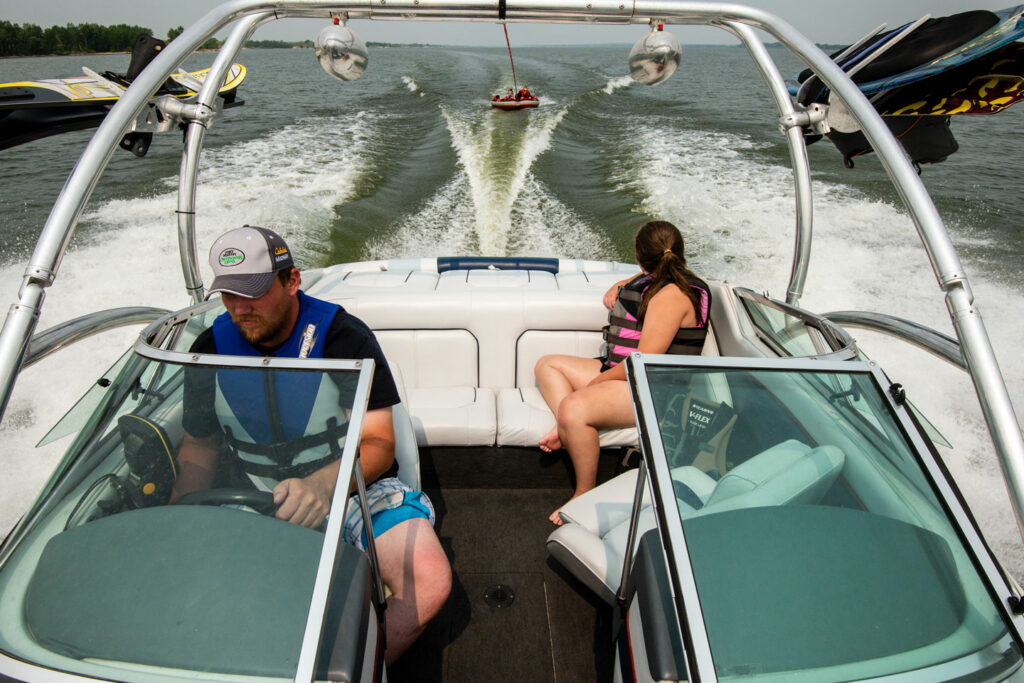Oct 2, 2025
Commissioners to consider sportfishing orders
They will take up these potential fishing changes at their meeting Oct. 10 at Niobrara State Park.

Boat season is heating up, and National Safe Boating Week, set for May 17-23, is a great time to remind boaters: Safety isn’t optional.
By following these safety tips, Nebraskans can help reduce the risk of incidents and help ensure safe and enjoyable days on the water, all summer long.
No matter what activity you have planned on the water, wear a life jacket every time you are on the water. Accidents can happen much too fast to reach and put on a stowed life jacket.
In Nebraska, children under age 13, those using personal watercraft and those being towed on skis or similar device must wear a U.S. Coast Guard-approved personal flotation device. Life jackets also are required for all paddleboard users, no matter their age.
Make sure your life jacket is U.S. Coast Guard approved, appropriate for your water activity and fits properly.
New life jackets are much more comfortable, lightweight and stylish than the bulky orange style most boaters know, so if you are relying on life jackets of old, consider treating yourself to a new one this year to avoid becoming a statistic.
Drowning was the reported cause of death in three out of every four recreational boating fatalities in 2023, according to the U.S. Coast Guard, and 87% of those who drowned were not wearing life jackets.
Anyone operating a motorboat or personal watercraft in Nebraska must be at least 14 years of age. Make sure you’ve registered your boat and, if a nonresident, purchase an Aquatic Invasive Species stamp at OutdoorNebraska.gov.
Learn more about Nebraska’s boating regulations at OutdoorNebraska.gov; search “Go boating.”
Though it’s only a legal requirement for those born after Dec. 31, 1985, consider completing the Nebraska boating safety course to learn the top things you need to know about navigating Nebraska waters, what to do in an emergency and more. Find an in-person or online class at OutdoorNebraska.gov; search for “boater education.”
Before you launch, ensure your boat or kayak is in good running condition and all essential equipment is present, including a life jacket for every person on board. Life jackets, throw cushions, fire extinguishers and bailing devices are required on most boats. An engine-cut-off device or switch also is a good idea.
Paddlers of kayaks or canoes also should physically inspect their planned take-out point to make sure it is accessible.
Before leaving home, let someone know where you are going and when you expect to return. Consider carrying a cellphone in a waterproof pouch, as well, in case an emergency occurs.
Storms can pop up quickly in Nebraska. Check the weather in advance and monitor it during the day, if necessary.
Nearly one-fifth of all recreational boating fatalities occur when someone is Boating Under the Influence, a criminal violation enforced in Nebraska. Always designate a sober driver.
Pay attention to other boats, personal watercraft, swimmers, stumps and other hazards.
Speeds in excess of 5 mph are prohibited if within 30 yards of any other vessel, swimming area or dock. If paddling a kayak or canoe, be aware of possible debris below the surface or under bridges.
Even though temperatures are rising, the water still can be cold. Hypothermia is caused by exposure to cold weather or water. Take caution to prevent hypothermia.
National Safe Boating Week serves as the annual kick-off of the Safe Boating Campaign, a global awareness effort that encourages boaters to make the most of their boating adventure by being responsible. Learn more at SafeBoatingCampaign.com.